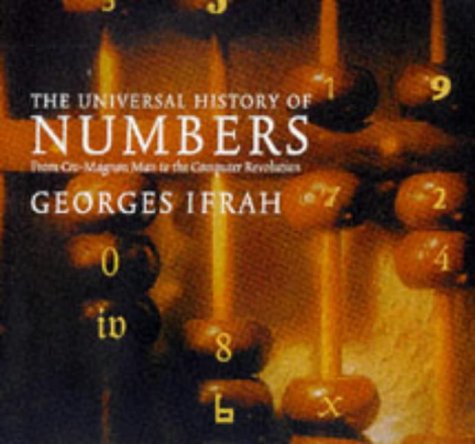A history of numbers, from Cro-Magnon Man to the electronic spreadsheet, taking in Scandinavia, China and the Classical World. The text is aided by explanatory figures and tables.
This is an extraordinary book by an extraordinary author. Mathematics teacher Georges Ifrah spent a decade travelling around the world researching the origins of numbers, supporting himself by working as a waiter, taxi-driver and night clerk. The result is
The Universal History of Numbers, an impressively detailed account of pretty much every aspect of the emergence and evolution of counting from the Cro-Magnons of 25,000 BC through Babylonian, Greek and Roman times to the metric system and beyond.
Ifrah never misses a chance to include intriguing insights that any reader can appreciate, from how to form cuneiform numbers on wet clay to performing calculations on your fingers--or how to use a Chinese abacus (with details of a 1945 competition between an abacus expert and someone using a calculator; the abacus-user won easily).
Much of this detail may well prove wearisome, however. I for one would have appreciated much less on long-dead number systems, and much more on modern developments in numbers. There is very little coverage of such key issues as irrational and transcendental numbers and nothing at all on the advent of complex, hyperreal or surreal numbers. This is clearly a labour of love, where the blindness of the inamorato is sadly all too apparent. --Robert Matthews
![]()
